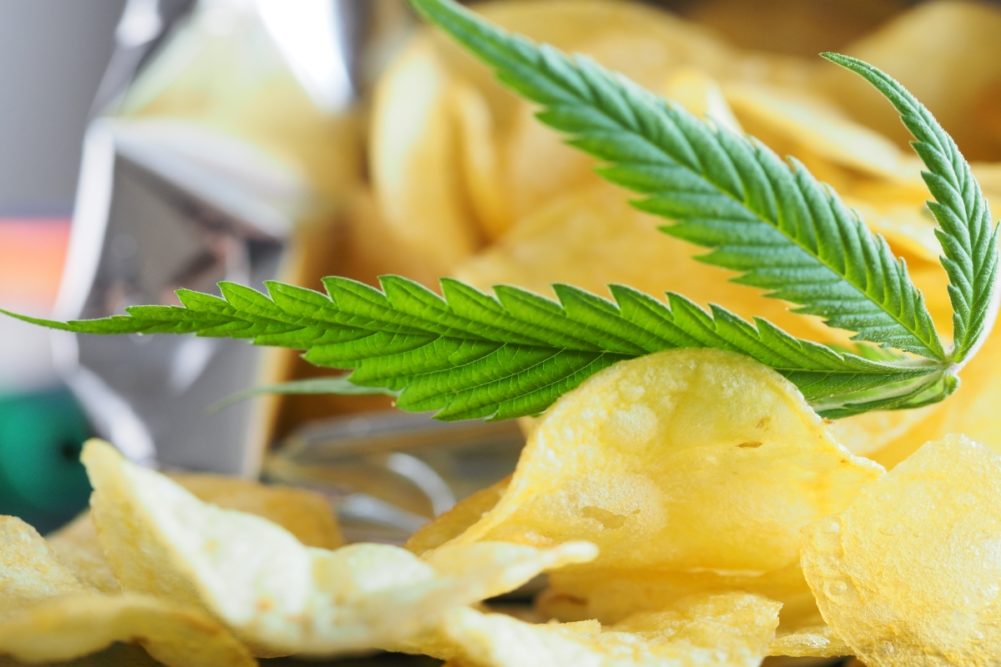The US cannabis industry shows no signs of slowing down, generating $28 billion in sales last year alone.
Seventy-two percent of Americans have used cannabis at least once over the past year, and the drug is now legal in some capacity in 38 states, said Steve Schain, attorney for cannabis, hemp and hallucinogens law firm Smart-Counsel, in his session at SNAXPO 2023, held March 19-21 in Orlando, Fla.
"Cannabis is coming. Cannabis is here,” he said. “The question is: How does it fit into what you want to do in terms of consumption?”
Cannabis-infused snacks and edibles are booming, hitting $4 billion in legal sales in 2022 and expected to reach $6 billion by 2025, according to BDSA’s US Cannabis Market Forecast.
This growth has led to a flurry of cannabis-infused snack products, including chips, pretzels, corn chips, granola bites and more, Mr. Schain said. TSUmo Snacks, Los Angeles, for example, offers tortilla chips, crunchers and onion chips made with cannabis, and 3Leaf, Oakland, sells cannabis-infused quinoa granola bites.
While sweet snacks like chocolates and gummies have traditionally dominated due to their ability to mask cannabis’ unappealing taste, growing ingredient knowledge, such as the role of fat, has allowed savory snacks to enter the space as well.
“Any amount of fat draws out the intensity of THC,” Mr. Schain explained. “Products that have fat are actually very cannabis friendly, and that’s where snacking products come in.”
There are no big-name players in the cannabis-infused snack category yet, Mr. Schain noted, which remains dominated by smaller startups. And while these emerging brands have a passion for cannabis, he said some may lack the necessary experience and capital to grow.
“They have a good feeling about cannabis; what they don’t have a good feeling about is running a business, or getting investors, or having a supply chain,” he said. “Think about ‘Are you scaled right for this?’ and ‘What are the steps to move forward and capture a piece of this very large market?’ ”
Cannabis’ legality is expanding, but it remains illegal at the federal level and is classified as a Schedule I controlled substance alongside drugs like methamphetamine and ecstasy. But Mr. Schain emphasized this will soon change.
“It’s not a question of if, it’s a question of when,” he said. “[Cannabis] is going to go between state lines because it has to; that’s just the way our commerce works.”
Mr. Schain said cannabis brands can build out their business with the expectation cannabis will come off of Schedule I. Another option, and one employed by 3Leaf, he said, is producing the non-cannabis ingredients and then shipping them to another state to be infused with domestically grown cannabis.
Regardless of the strategies these snack brands employ, the cannabis market, as well as its legality, is going to expand rapidly.
“Trust me: every other domino is going to fall,” Mr. Schain said. “Because at this point, even if you don’t want cannabis, you don’t want to miss out on the revenue.”




